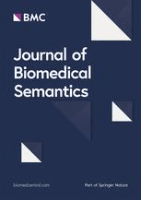
Journal of Biomedical Semantics
Scope & Guideline
Elevating Biomedical Research with Semantic Excellence
Introduction
Aims and Scopes
- Ontology Development and Application:
The journal emphasizes the creation and use of ontologies to standardize biomedical data, facilitating better communication and understanding across various research domains. - Natural Language Processing in Biomedicine:
A significant focus is on the application of natural language processing (NLP) techniques to extract meaningful information from clinical texts and biomedical literature. - Knowledge Graphs and Semantic Web Technologies:
The journal explores the construction and utilization of knowledge graphs to represent complex biomedical information, enhancing data discoverability and usability. - Data Interoperability and FAIR Principles:
Research promoting the principles of Findability, Accessibility, Interoperability, and Reusability (FAIR) in biomedical data management is a core area, aiming to enhance data sharing practices. - Clinical Decision Support Systems:
The integration of semantic technologies into clinical decision-making processes is a consistent theme, aiming to improve patient care through better data utilization.
Trending and Emerging
- Advanced Semantic Technologies:
There is a growing trend towards employing advanced semantic technologies, including machine learning and AI, to enhance the extraction and representation of biomedical knowledge. - Interdisciplinary Approaches to Ontology Development:
Emerging research showcases collaborations across disciplines, integrating insights from computer science, biology, and clinical practice to develop more robust ontologies. - Health Data Integration and Management:
The integration of diverse health data sources is gaining prominence, focusing on creating unified models that can handle complex datasets effectively. - Automated Knowledge Extraction:
Research increasingly emphasizes automated methods for knowledge extraction from biomedical literature, driven by the need for efficiency and scalability in data processing. - Real-World Evidence and Data-Driven Research:
There is a rising interest in utilizing real-world evidence, including patient data and clinical trials, to inform and validate ontological frameworks and semantic models.
Declining or Waning
- Traditional Data Annotation Techniques:
There has been a noticeable decrease in the focus on conventional data annotation methods, with a shift towards more automated and semantic approaches driven by machine learning and NLP. - General Biomedical Ontologies:
While specific ontologies continue to thrive, more generalized ontologies are seeing reduced attention as researchers prefer domain-specific and application-oriented ontologies. - Static Data Models:
The emphasis on static data models is waning as the field moves towards dynamic, adaptable models that can evolve with ongoing research and data changes. - Basic Text Mining Approaches:
Basic text mining techniques are being overshadowed by more sophisticated NLP methods that leverage deep learning and advanced semantic technologies. - Single-Domain Focus:
Research that focuses solely on a single domain is becoming less common as interdisciplinary approaches gain traction, integrating insights from various biomedical fields.
Similar Journals
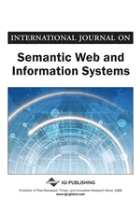
International Journal on Semantic Web and Information Systems
Unveiling Cutting-Edge Insights in Semantic Web Technologies.International Journal on Semantic Web and Information Systems, published by IGI Global, stands as a premier outlet for research in the realm of Semantic Web technologies and information systems. With a commitment to advancing knowledge and innovation, the journal is recognized for its influential contributions, evident from its prestigious Q1 rankings in both Computer Networks and Communications and Information Systems categories as of 2023. Catering to the high demands of the academic community, the journal provides a platform for interdisciplinary dialogue, showcasing cutting-edge research, methodologies, and applications that underpin the evolving landscape of information systems. Researchers and professionals can stay informed about the latest trends, best practices, and transformative technologies shaping the Semantic Web. Although it does not offer open access, the journal maintains rigorous peer-review standards to ensure quality and relevance, making it an essential resource for anyone dedicated to pushing the boundaries of knowledge in this dynamic field.

International Journal of Semantic Computing
Exploring the Nexus of AI, Linguistics, and NetworksThe International Journal of Semantic Computing is a premier scholarly publication focused on the intersection of artificial intelligence, computer networks, and linguistics, published by World Scientific Publishing Co PTE Ltd. Since its inception in 2007, this journal has strived to advance the field of semantic computing by promoting innovative research and interdisciplinary collaboration among professionals and academics. With a diverse scope that spans across various categories including Artificial Intelligence, Information Systems, and Linguistics, it boasts commendable rankings, particularly in the fields of Linguistics (77th Percentile) and Linguistics and Language (Rank #259/1167). The journal caters to a broad audience by offering critical insights and cutting-edge studies, thereby contributing significantly to knowledge enhancement in semantic technologies and computational linguistics. Although it does not offer open access options, its rigorous peer-review process ensures the publication of high-quality research that is invaluable for both researchers and students seeking to deepen their understanding in these rapidly evolving areas.
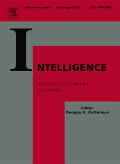
INTELLIGENCE
Illuminating Pathways to Understanding IntelligenceINTELLIGENCE, published by Elsevier Science Inc, is a leading international journal dedicated to advancing research in the fields of cognitive psychology, developmental psychology, and human intelligence. With an impact factor reflecting its authority within the academic community, this journal occupies a prestigious position—ranking in the Q1 category for Arts and Humanities and achieving strong Q2 rankings in both Developmental and Educational Psychology and Experimental and Cognitive Psychology. Scholars can access high-quality research articles that contribute to the understanding of intelligent behavior, cognitive processes, and the implications of intelligence in various contexts. By encompassing a broad range of interdisciplinary perspectives since its inception in 1977 and continuing into 2024, INTELLIGENCE serves as an essential resource for researchers, professionals, and students keen to explore the complexities of human thought and learning.
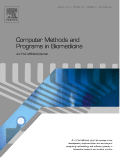
Computer Methods and Programs in Biomedicine
Pioneering Interdisciplinary Research at the Intersection of Computer Science and Health.Computer Methods and Programs in Biomedicine, published by ELSEVIER IRELAND LTD, is a leading journal at the intersection of computer science and biomedical research. With an impressive impact factor evidenced by its Q1 rankings in multiple categories—Computer Science Applications, Health Informatics, and Software—this journal ranks highly among peer publications, showcasing its significance in advancing interdisciplinary research. Covering a wide array of topics since its inception in 1985, it is particularly crucial for those invested in the innovation of computational methods applied to the biomedical field. The journal has established a strong reputation, with Scopus rankings placing it in the top percentiles across its relevant sectors, including the 14th position out of 138 in Health Informatics. Researchers, practitioners, and students looking to explore current trends, methodologies, and advancements in biomedical applications of computer science will find this journal an invaluable resource.

DATA & KNOWLEDGE ENGINEERING
Transforming Data into Knowledge for a Smarter WorldData & Knowledge Engineering is a prestigious, peer-reviewed journal dedicated to the fields of data management, information systems, and knowledge engineering. Published by Elsevier in the Netherlands, this journal serves as a critical resource for researchers, professionals, and students alike, offering a platform for high-quality, original research and innovative approaches in the realm of data-driven technologies and methodologies. With a considerable impact factor and classified in the Q2 quartile for Information Systems and Management, it ranks 47th out of 148 journals in its category, placing it in the esteemed 68th percentile according to Scopus metrics. Data & Knowledge Engineering covers a wide array of topics including database systems, data mining, and knowledge representation, ensuring that it remains at the forefront of advancing understanding and application in these dynamic fields. Engage with compelling articles and significant findings published since its inception in 1985, as the journal continues to shape the future of data-centric research up to 2024 and beyond.

BMC Medical Informatics and Decision Making
Innovating health systems for a better tomorrow.BMC Medical Informatics and Decision Making is a leading journal in the fields of medical informatics and health policy, published by BMC since its inception in 2001. With an impressive impact factor reflecting its status as a Q1 journal in both Computer Science Applications and Health Informatics, it serves as a vital resource for researchers, professionals, and students dedicated to advancing healthcare through informatics. The journal is committed to disseminating high-quality, peer-reviewed research focused on the innovative use of information technology in healthcare, decision-making processes, and policy formulation. As an Open Access platform, it ensures that findings are widely accessible and can foster collaboration across various disciplines. Positioned at the cutting edge of health informatics, BMC Medical Informatics and Decision Making aims to influence practice and inspire new research directions, making it an essential publication for anyone involved in improving health systems worldwide.
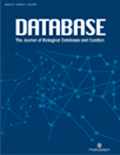
Database-The Journal of Biological Databases and Curation
Advancing the Frontiers of Biological Data ManagementDatabase - The Journal of Biological Databases and Curation, published by Oxford University Press, stands at the forefront of the rapidly evolving fields of biological data management and curation. Since its inception in 2009, this open access journal has become a pivotal resource for researchers and professionals eager to explore the intricate world of biological databases. With an impressive impact factor, it ranks in the Q1 quartile across significant disciplines such as Agricultural and Biological Sciences, Biochemistry, Genetics and Molecular Biology, Information Systems, and Medicine as of 2023. This prestigious standing reflects its commitment to high-quality research and innovation. The journal not only provides a platform for original research articles, reviews, and case studies but also aims to facilitate discussion on best practices in database design and curation. By bridging the gap between data generation and utilization, it plays an essential role in enhancing the accessibility and usability of biological data, making it indispensable for scholars and students who are navigating these complex domains.
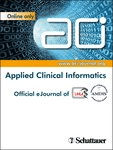
Applied Clinical Informatics
Bridging the gap between health and technology for better patient care.Applied Clinical Informatics is a leading journal dedicated to the expanding field of health informatics and its applications within clinical settings. Published by GEORG THIEME VERLAG KG in Germany, this journal serves as a pivotal platform for researchers and professionals engaged in the integration of technology and healthcare, aiming to improve patient outcomes through innovative informatics solutions. With a solid Q2 ranking in multiple disciplines including Computer Science Applications, Health Informatics, and Health Information Management, it reflects its prominent position in the academic landscape. The journal provides accessible content while fostering dialogue on key issues and advancements in clinical informatics. Covering a wide array of topics from data management to e-health applications, Applied Clinical Informatics is essential reading for those looking to stay attuned to the latest research and developments from 2009 to 2024, enriching the knowledge base of students, professionals, and researchers worldwide.
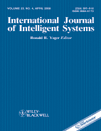
INTERNATIONAL JOURNAL OF INTELLIGENT SYSTEMS
Driving Progress in Theoretical Computer ScienceInternational Journal of Intelligent Systems, published by Wiley-Hindawi, stands at the forefront of the Artificial Intelligence, Human-Computer Interaction, Software, and Theoretical Computer Science fields. With an impressive Q1 ranking across multiple categories in 2023 and a robust track record since its inception in 1986, this journal is essential for researchers, professionals, and students alike who are eager to explore cutting-edge innovations and theoretical advancements. Located in the United Kingdom, the journal operates under the esteemed Wiley-Hindawi publishing house, ensuring a broad dissemination of high-quality research articles. The journal's diverse scope encompasses advancements in intelligent systems and their practical applications, fostering an interdisciplinary dialogue that encourages collaboration across various domains. Although Open Access options are not available, subscribers benefit from the rich repository of knowledge this journal offers, making it a vital resource in the rapidly evolving landscape of intelligent technologies.

INFORMATION RESEARCH-AN INTERNATIONAL ELECTRONIC JOURNAL
Connecting Scholars through Open Access Insights.INFORMATION RESEARCH - AN INTERNATIONAL ELECTRONIC JOURNAL is a distinguished open-access journal published by the University of Sheffield's Department of Information Studies, situated in England. Since its inception in 1995, the journal has been at the forefront of disseminating research findings in the field of Library and Information Sciences, earning a commendable Q2 ranking in the category for 2023. With an ISSN of 1368-1613 and an E-ISSN of 1368-1613, it serves as a vital resource for scholars, practitioners, and students alike, providing a platform for innovative insights and engaging discussions. The journal accepts submissions from diverse perspectives related to the information research domain and contributes to the ongoing dialogue among academic professionals worldwide. With a Scopus ranking placing it at 150 out of 280 in its field, this publication underscores its importance in shaping the future of information studies while enabling wide accessibility to cutting-edge research.